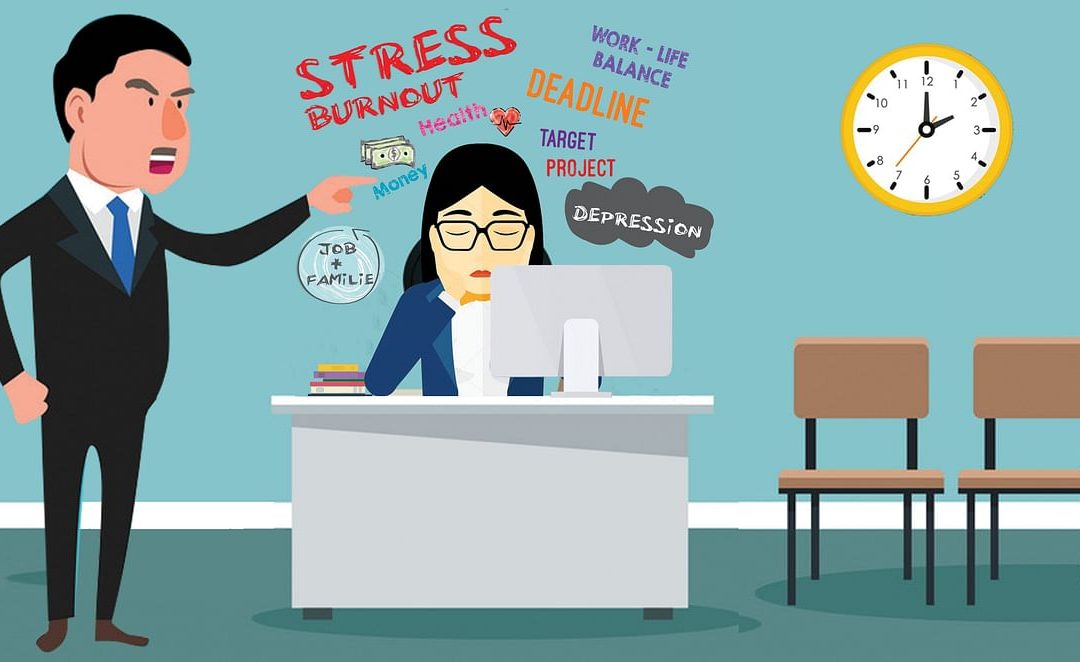It was the early days of COVID19-induced lockdown in India. In one of the company-wide Zoom calls, one of our bright team managers asked me about my forecast for the Quarter and a timeframe for the normal days of work to resume. As I think about it now, I can feel how naïve I was to put up a brave front and paint a super-optimistic picture. Don’t the senior leaders often visualise unrealistic scenarios and chase those goals in the name of ambitiousness?
Why stress?
The boss reads a book, an article, attends a seminar or watches a video, gets excited about an idea and pulls the strings in his or her control to drive something new. It creates additional work and adds new responsibilities to each person connected with this new initiative launched. The boss becomes restless in the follow-ups for the tasks assigned and the desired results. Imagine what happens to the lives of the employees who have more work and more questions to answer!
Sometimes, it is the misalignment in values and hence, the resultant trust deficit in the work environment which damages one’s mental fabric. This can come about between peers or in a boss-subordinate relationship. Work becomes a huge burden, the mind starts veering and tasks turn into worthless exercises when there is lack of trust in the environment. This can happen to anyone at any stage of one’s work-life irrespective of one’s age, gender, experience and the kind of responsibilities assigned.
Many times, stress springs up like a mushroom in every nook and corner of a team or a department because of the culture. The behaviours of the manager around transparency, fairness, freedom, personal development and recognition determine how well the tasks are assigned, goals are set, decisions are made, conflicts are resolved, efforts of employees are recognised and the employees are developed and grown.
Social Capital has to be built and grown
Around the world, in April-May 2020, billions of people were locked out in their homes. Many white-collar employees were assigned to work at home to deliver results. Essential services had to function and hence, they had to brave the situation and come to work. Technology played a key role in keeping us connected socially, getting work done and organising some kind of commercial activities. However, the remote working could not be effective in teamwork when the members of the team had a fragile relationship. New employees faced challenges in immersing in the company culture and building bridges with colleagues to work together. It has been a year since COVID-19 struck, yet some managers haven’t been able to adapt to managing teams when members are working remotely. They do not have a sense of being-in-control and end up losing their trust in their team members; sometimes, they lose their peace of mind.
Tomorrow’s organisations are going to adopt a hybrid workplace where some people will be in a physical workplace and some will be working away from the workplace which may be an office, a factory or a project site. Managers have to learn to use the technology tools effectively to connect with their team members, assign tasks, monitor progress and carry out frequent check-ins to offer encouragement and suggest course-corrections. However, these interventions are not enough in addressing the gaps we have experienced already. They have to build, develop and nurture the relationship with the members of their team anchored on mutual trust, respect and accountability.
Bedrock has to be strong
We have to build the systems and processes such that they embody the expectations of the employees in the current times. Our workforce is looking for transparency, freedom to operate, fairness, flexibility, care for environment and opportunities for growth and development. We have to build these in each of our processes by default.
For examples, right from recruiting to performance appraisal, learning, innovation and all the other business processes, we have to ensure frequent communication across the ranks of the organisation and still better, if we have more and more two-way communication. Our goal-setting processes must be transparent and two-way; performance management process has to be objective, timely, periodic and frequent. Decision-making forums must be clearly defined and well-known in the organisation; its working must be visible across the company. Grievances must get addressed super-fast and communication has to be proactive.
Like a skyscraper needs a strong foundation, the organisation for tomorrow needs a strong bedrock where the values are clearly understood, the basic expectations of the workforce are fulfilled and listening is embedded in the organisation’s culture.


